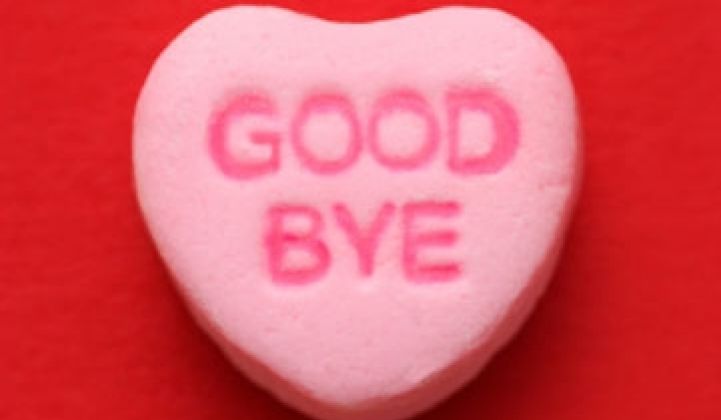Sometimes you just grow apart.
A123 Systems, the lithium ion battery maker that held its IPO last year, used to sell most of its output to power tool powerhouse Black & Decker. The relationship, however, has recently become more distant.
"During each of the years ending December 31, 2007 and 2008 and 2009, Black & Decker, together with its affiliates, represented 66%, 44%, and 14% of our revenue, respectively," A123's most recent S-1 form with the Securities and Exchange Commission states. "We expect revenue from Black & Decker will continue to decline in 2010 and therefore represent a smaller percentage of our revenue in future periods."
Part of the decline can be attributed to the broader mix of customers the company has garnered. Since 2007, the Massachusetts-based battery maker has added Fisker Automotive (after investing $35 million in Fisker) and Chrysler, among others, as customers, while also increasing the total volume of batteries that it ships. In 2009, A123 shipped 66.5 million watt hours worth of batteries, or roughly 50 percent up from the 44.9 million it shipped in 2008. Revenue climbed to $91 million in 2009, a 33 percent jump from 2008. (Net losses for 2009 came to $85.8 million, a slight increase from the $80.5 million loss in 2008.)
Thus, Black & Decker's percentage had to decline. At the same time, the power tool industry got hit by the downturn in consumer spending.
Still, not all of the distance between the two companies can be attributed to fluctuating numbers. Although A123 continues to sell parts to the tool maker, Black & Decker has shifted to other suppliers for some tools.
"We continue to evaluate cells from many suppliers to find the best performance available for each specific range of tools. While we have transitioned some tools to different cells, we continue to use A123 cells in a specific range of tools," a Black & Decker spokesman wrote.
Customer churn is fact of life in the battery business. Just ask the suppliers who lost the Tesla contract to Panasonic. More from the A123 S-1:
"Revenue from Mercedes-Benz High Performance Engines represented 12% and 8%, respectively, of our revenue, but we do not anticipate receiving any revenue from Mercedes-Benz High Performance Engines in 2010," the company stated. "For the year ending December 31, 2009, revenue from BAE Systems represented 35% of our revenue. For the year ended December 31, 2009, revenue from AES Energy accounted for 9% of our revenue."
A123's stock is at around $14.20, above the IPO price of $13 but below the ecstatic highs of around $20 right after the IPO.
What does this all mean? It highlights again how batteries and commodity hardware remains a tough business. Imara exited the business last year after it couldn't get capital for a factory. Well-funded Boston Power has put its batteries in some HP notebooks, but mostly the batteries are touted as an upgrade. In the automotive space, Saab, which recently got sold, is the company's main announced partner.
Maybe the large, established manufacturers will continue to dominate it after all.



